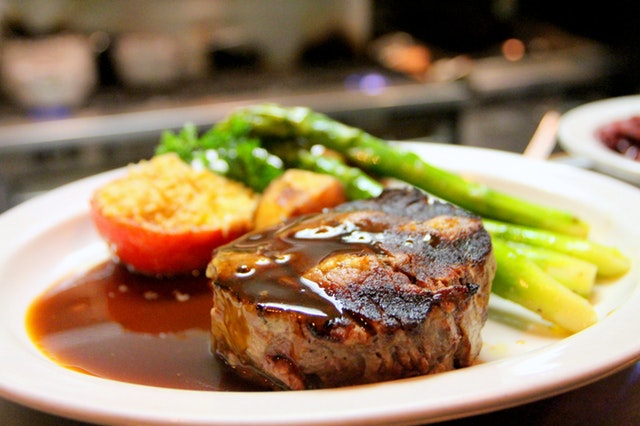By Melinda Maryniuk, MEd, RD, CDCES
We review several different eating approaches in our “Dietitian’s Review” series with the goal of helping people who are looking to evolve their eating style towards better health. It’s important to emphasize that “going on a diet” is very rarely associated with long-term success with weight. We provide these reviews for anyone who wants to improve their health and is looking for an eating approach that will best fit their lifestyle and preferences.
***
What is it?
The DASH diet (Dietary Approaches to Stop Hypertension) was originally developed by the National Heart, Lung and Blood Institute (NHLBI) as a meal plan for people with high blood pressure. However, it has become widespread as a recommended meal plan for general healthy eating as well as for weight loss. While it has some similarities to the Mediterranean diet in that there is an emphasis on fruits and vegetables, it may be a bit lower in calorie (with a little less focus on olive oil) and it is also lower in sodium. It is backed by medical research.
What do I eat?
The meal plan features nutrients linked with helping lower blood pressure including potassium, calcium, protein and fiber. Thus, the focus of the DASH plan is on lots of vegetables and fruit (some at every meal and snack), lean meats, poultry, fish, low-fat dairy and whole grains. Avoid processed and salted foods. Sodium is limited to 2300 mg or less (1500 mg) for those who benefit from further restriction.
Is it effective?
Initial research demonstrated the effectiveness of the DASH diet for reducing blood pressure. Subsequent studies have found it has benefits for a variety of other conditions including reducing weight and decreasing risk for type 2 diabetes.
What are some pros and cons?
Pros: Well balanced; includes all food; scientifically based; many website resources offer recipe ideas
Cons: Takes time to read labels to avoid sodium; may be more expensive for purchase of more fresh foods.
How do I learn more?
- Websites: https://www.nhlbi.nih.gov/health-topics/dash-eating-plan and dashdiet.org
- Book: The Dash Diet Weight Loss Solution, by Marla Heller, MS, RD
Eating a healthy diet and being active are both really important for being healthy, but for many people diet and exercise alone aren’t enough to help them reach their weight-loss goals. If this sounds familiar, read this fascinating article about what to do when diet and exercise aren’t getting you to where you want to be.
To find a physician near you who specializes in weight management, click here.
Get a weekly text to help you stay on track with your health goals! Click here to sign up.
This article was sponsored by Novo Nordisk Canada. All content is created independently by My Weight – What To Know with no influence from Novo Nordisk.

